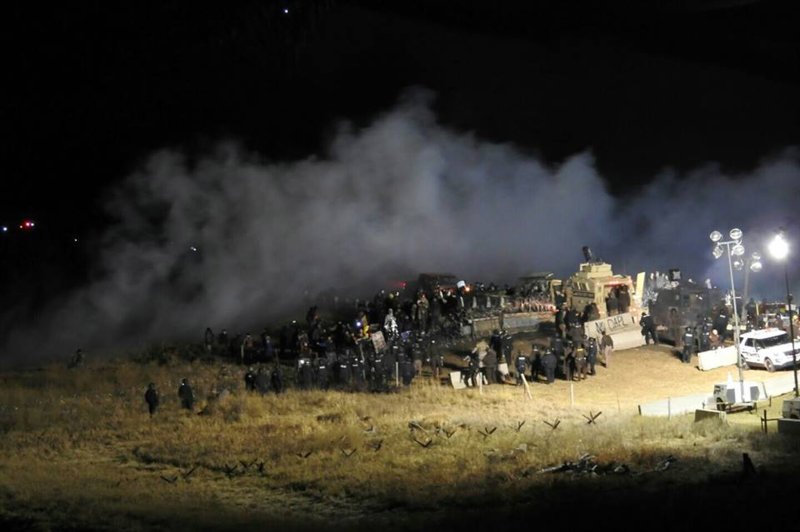Police and protesters clash on the Backwater Bridge, north of a protest camp in North Dakota's Morton County on November 20. The U.S. Army Corps of Engineers published a notice it's initiating an environmental impact statement related to the routing the Dakota Access pipeline under Lake Oahe in North Dakota. Photo courtesy of Morton County Sheriff's Department
Jan. 18 (UPI) -- The U.S. Army Corps of Engineers has launched a full environmental study of the Dakota Access pipeline's crossing in North Dakota.
On Wednesday, the Army published a notice to prepare an impact study on the Lake Oahe crossing of the Missouri River. It's about a half-mile upstream from the Standing Rock Sioux Tribe's reservation. The tribe protests the crossing because it relies on the lake for a variety of purposes, including fishing.
Energy Transfer Partners can't lay pipe under the reservoir during the study of the $3.7 billion project.
But the company asked U.S. District James Boasberg on Monday to block the study, claiming it already has the necessary approval to drill under the lake.
On July 25, the Corps determined the crossing wouldn't have a significant impact on the environment but on Dec. 4 it said it "proposed location merits additional analysis, more rigorous exploration and evaluation of reasonable siting alternatives, and greater public and tribal participation and comments."
The Army Corps wants opinions from the public and will schedule meetings.
Approximately 570,000 barrels per day will flow through the pipeline, which is 30 inches in diameter.
The approximate 1,172-mile pipeline connects the Bakken and Three Forks oil production areas in North Dakota to current crude oil market near Patoka, Ill.
At least 589 protesters have been arrested, including three on Monday.















